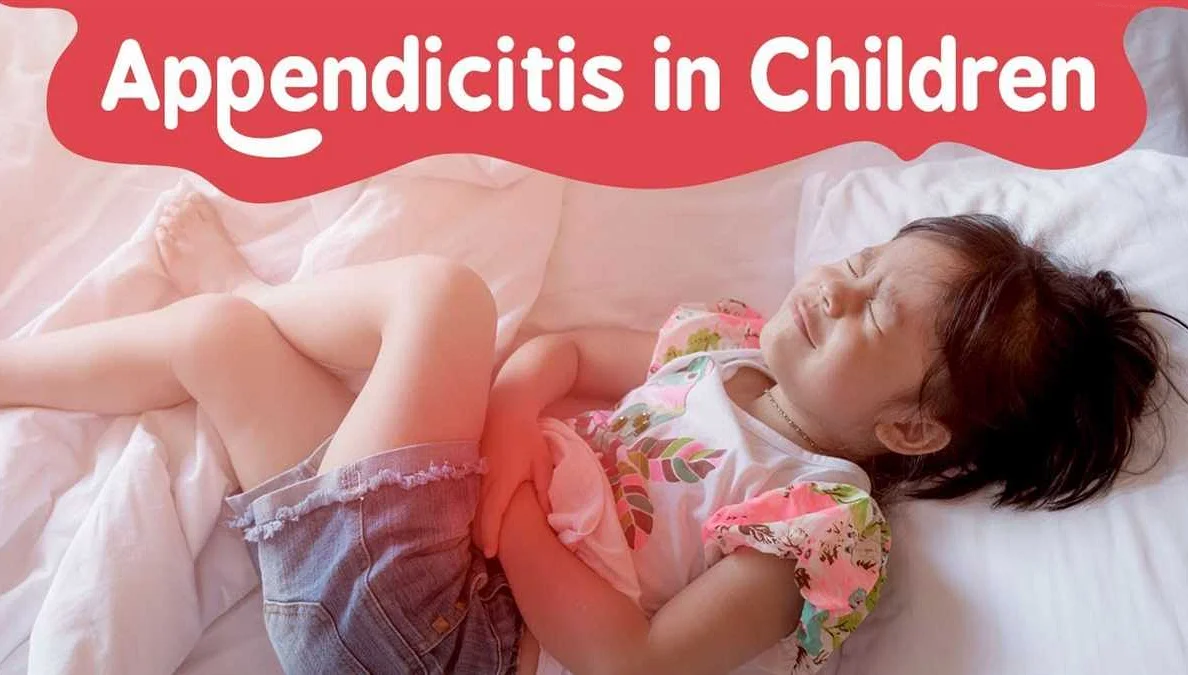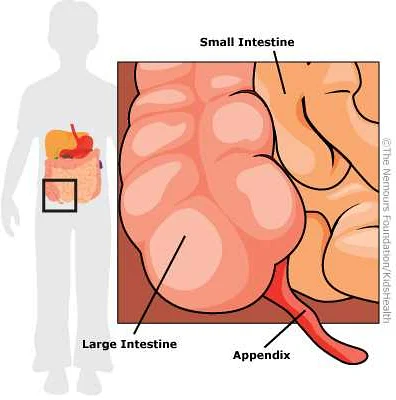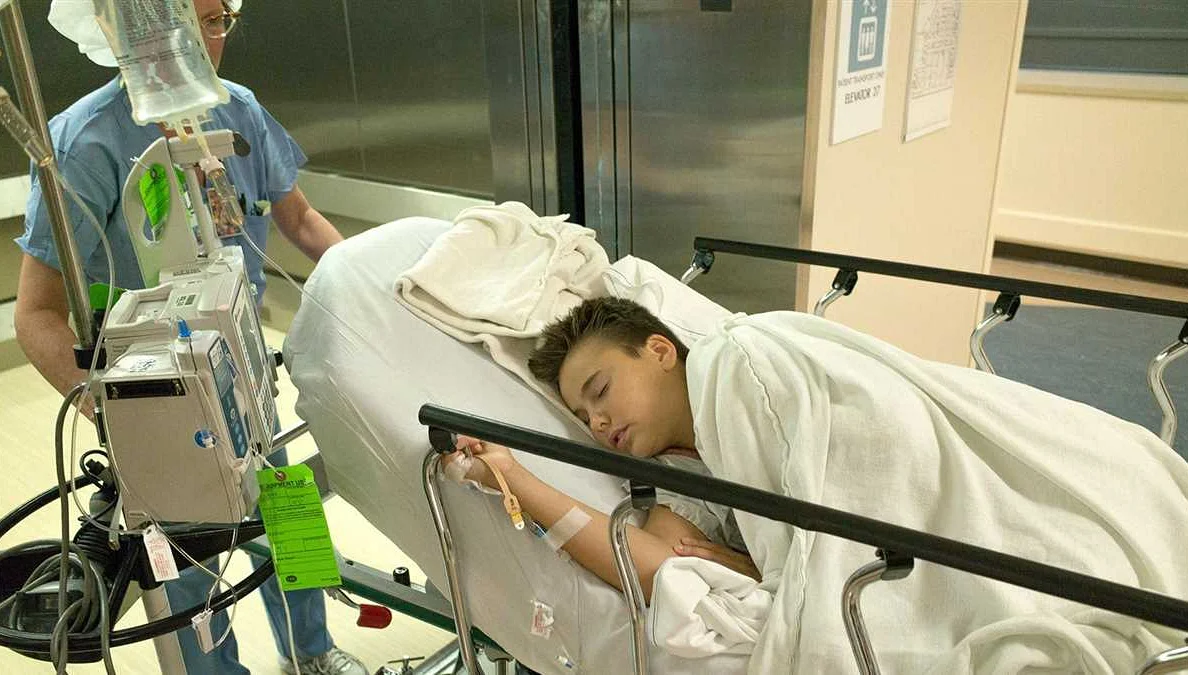Appendicitis in a Child: Symptoms of the Disease and the Importance of Providing Timely Assistance
Содержимое
Learn about the symptoms of appendicitis in children and why it is crucial to seek timely medical help. Discover the signs to look out for and understand the importance of early intervention to prevent complications.
Appendicitis is a serious condition that commonly affects children and requires immediate medical attention. The appendix, a small pouch attached to the large intestine, can become inflamed and infected, causing intense abdominal pain and discomfort. While appendicitis can occur at any age, it is most commonly diagnosed in children between the ages of 10 and 14.
Recognizing the symptoms of appendicitis is crucial for parents and caregivers, as early detection can prevent complications and potentially life-threatening situations. The classic signs of appendicitis in children include severe abdominal pain that starts around the belly button and migrates to the lower right side of the abdomen. The pain may worsen with movement or coughing, and the area may feel tender to the touch.
In addition to abdominal pain, children with appendicitis may experience other symptoms such as loss of appetite, nausea, vomiting, and a low-grade fever. It is important to note that not all children will exhibit the same symptoms, and some may have atypical presentations. Therefore, it is essential to seek medical attention if a child complains of persistent abdominal pain or exhibits any concerning symptoms.
Timely assistance is paramount when appendicitis is suspected. If left untreated, an inflamed appendix can rupture and cause a dangerous infection in the abdominal cavity. This can lead to peritonitis, a severe condition that requires emergency surgery and intensive care. Delayed treatment can also increase the risk of complications such as abscess formation and sepsis.
In conclusion, appendicitis is a serious condition that can occur in children and requires prompt medical intervention. Recognizing the symptoms of this condition, such as severe abdominal pain and tenderness, is crucial for early detection and intervention. Parents and caregivers should seek immediate medical attention if a child exhibits concerning symptoms, as the timely assistance can prevent complications and ensure a positive outcome.
Appendicitis in a Child: Symptoms and Identification

Appendicitis is a condition that commonly affects children and can lead to serious complications if left untreated. Recognizing the symptoms of appendicitis is crucial for prompt medical intervention.
The first sign of appendicitis in children is often abdominal pain. This pain typically starts around the belly button and then moves to the lower right side of the abdomen. The pain can be constant or intermittent and may worsen with movement or coughing. It is important for parents to pay attention to any complaints of abdominal pain from their child and seek medical attention if it persists or worsens.
In addition to abdominal pain, other symptoms of appendicitis in children may include:
Loss of appetite: Children with appendicitis may experience a decrease in appetite and show little interest in eating.
Nausea and vomiting: Children may experience feelings of nausea and may vomit as a result of appendicitis.
Fever: A low-grade fever is a common symptom of appendicitis in children. Parents should monitor their child’s temperature and seek medical attention if it rises above 100.4°F (38°C).
Diarrhea or constipation: Appendicitis can cause changes in bowel movements. Some children may develop diarrhea, while others may experience constipation.
Increased pain with pressure: When pressing on the lower right side of the abdomen, children with appendicitis may experience increased pain or discomfort.
Generalized malaise: Children with appendicitis may appear tired, irritable, or generally unwell.
Identifying these symptoms is essential, as prompt diagnosis and treatment of appendicitis can prevent the appendix from rupturing and causing a potentially life-threatening infection. If a child is experiencing any of these symptoms, it is important to consult a healthcare professional for a proper evaluation and diagnosis.
Overview of Appendicitis

Appendicitis is a common condition that affects individuals of all ages, including children. It occurs when the appendix, a small organ located in the lower right abdomen, becomes inflamed and infected.
The exact cause of appendicitis is often unknown, but it is believed to occur when the appendix becomes blocked by stool, foreign objects, or swollen lymph nodes. This blockage can lead to inflammation, which can then progress to infection if not treated promptly.
Symptoms of appendicitis in children can vary, but some common signs and symptoms include:
- Abdominal pain: The most common symptom of appendicitis is abdominal pain that starts around the navel and then moves to the lower right side of the abdomen. The pain can be intense and may worsen with movement, coughing, or sneezing.
- Nausea and vomiting: Many children with appendicitis experience nausea and may vomit.
- Fever: A low-grade fever is often present in children with appendicitis.
- Loss of appetite: Children may show a lack of interest in eating or may refuse to eat altogether.
- Diarrhea or constipation: Changes in bowel movements, such as diarrhea or constipation, may occur.
- Abdominal swelling: The abdomen may become swollen and tender to the touch.
- Rebound tenderness: Pressing on the lower right side of the abdomen and then quickly releasing pressure may cause pain.
It is important to seek medical attention as soon as possible if you suspect that your child may have appendicitis. Delaying treatment can result in complications, such as a ruptured appendix, which can be life-threatening.
If appendicitis is suspected, a doctor will usually perform a physical examination and order additional tests, such as blood tests and imaging studies, to confirm the diagnosis. In most cases, surgery to remove the inflamed appendix, called an appendectomy, is necessary.
Overall, appendicitis is a serious condition that requires prompt medical intervention. Knowing the symptoms and seeking timely assistance can greatly reduce the risks and complications associated with this condition.
Common Symptoms of Appendicitis in Children

Appendicitis is a common condition that can affect children of all ages. It occurs when the appendix, a small organ located in the lower right abdomen, becomes inflamed. Although the exact cause of appendicitis is often unknown, it can be a serious condition that requires immediate medical attention.
Recognizing the symptoms of appendicitis in children is crucial in order to provide timely assistance. Some of the common symptoms to look out for include:
- Abdominal pain: The most common symptom of appendicitis in children is pain in the lower abdomen. It usually starts around the belly button and then moves to the lower right side of the abdomen.
- Loss of appetite: Children with appendicitis may experience a sudden loss of appetite or have difficulty eating.
- Nausea and vomiting: Appendicitis can cause nausea and vomiting, especially if the pain is severe.
- Fever: A low-grade fever is another common symptom of appendicitis in children.
- Diarrhea or constipation: Changes in bowel habits, such as diarrhea or constipation, may occur due to appendicitis.
- Tenderness and swelling: The area around the appendix may feel tender to the touch, and there may be swelling or a bulge.
- Rebound tenderness: Pressing on the lower right side of the abdomen and then releasing it quickly may cause increased pain, known as rebound tenderness.
If your child is experiencing any of these symptoms, it is important to seek medical attention immediately. Do not give your child any pain medication or apply heat to the abdomen, as this can mask the symptoms and delay diagnosis.
In conclusion, recognizing the common symptoms of appendicitis in children is crucial for ensuring timely medical assistance. If you suspect that your child may have appendicitis, it is essential to seek immediate medical attention in order to prevent complications and ensure a speedy recovery.
Importance of Early Diagnosis
Early diagnosis of appendicitis in a child is crucial for the successful treatment of this condition. Recognizing the symptoms of appendicitis at an early stage can prevent complications and reduce the risk of rupture, which can be life-threatening.
When a child exhibits symptoms such as abdominal pain, vomiting, and loss of appetite, it is important for parents and caregivers to seek medical attention promptly. Delaying diagnosis and treatment can lead to the progression of the infection, resulting in a more severe condition.
Diagnosing appendicitis in children can sometimes be challenging due to the non-specific nature of the symptoms and the difficulty in obtaining accurate information from young patients. However, healthcare providers who are experienced in pediatric care can use a combination of physical examinations, medical history, and diagnostic tests to make an early and accurate diagnosis.
Early diagnosis allows for timely intervention, which often involves surgical removal of the appendix. Surgery is the most effective treatment for appendicitis in children, and it is typically performed as soon as the diagnosis is confirmed. Prompt surgical intervention can prevent the appendix from rupturing and spreading the infection to other parts of the abdomen.
In addition to preventing complications, early diagnosis also helps minimize the child’s pain and discomfort. Appendicitis can cause severe abdominal pain, and early treatment can provide relief to the child and improve their overall well-being.
In conclusion, the importance of early diagnosis of appendicitis in a child cannot be overstated. Prompt recognition of the symptoms and seeking medical attention without delay can save a child from potential complications and ensure a faster recovery. Parents and caregivers should be vigilant and educated about the signs of appendicitis to provide the best possible care and ensure the well-being of their children.